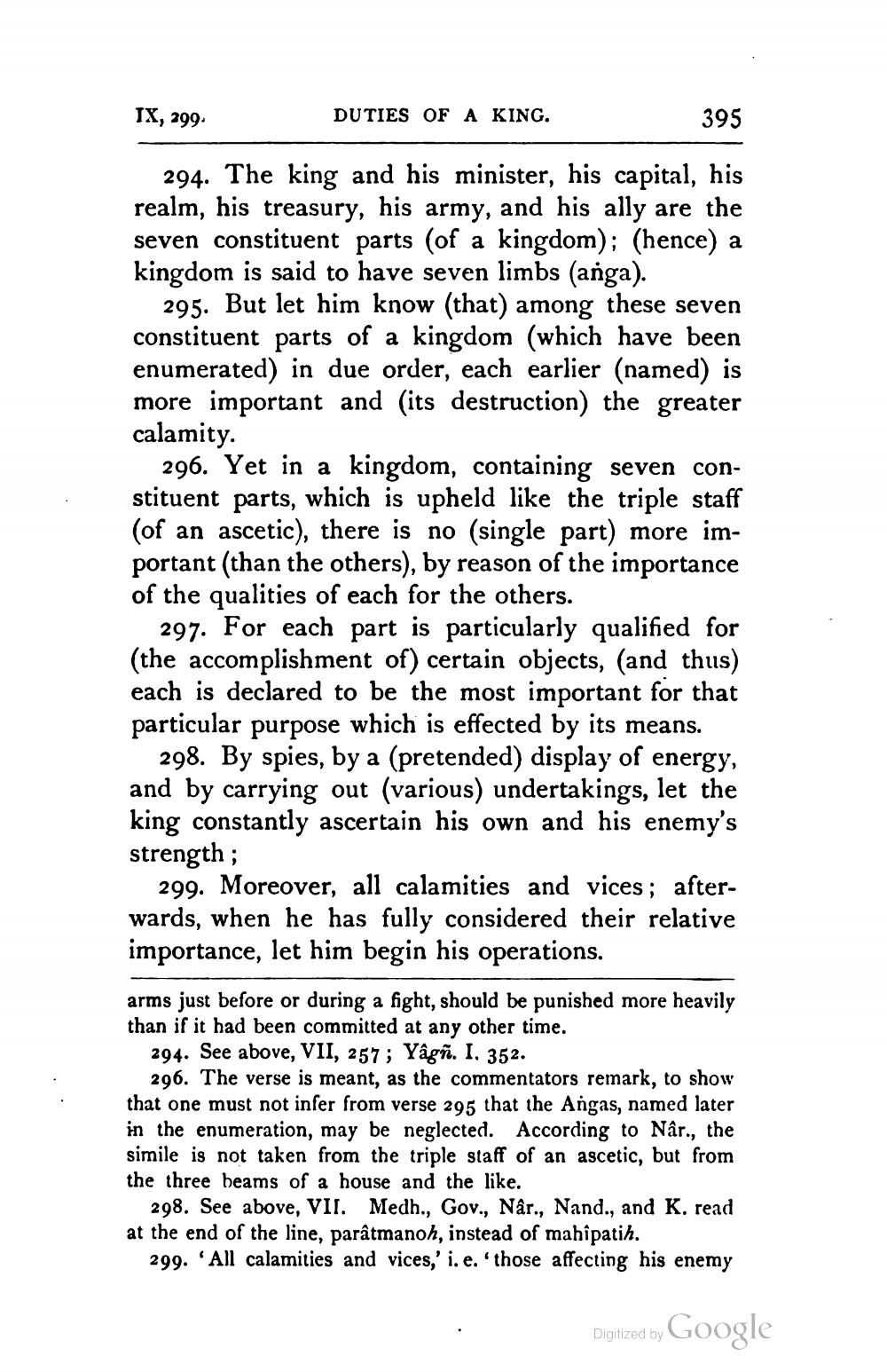________________
IX, 299.
DUTIES OF A KING.
395
294. The king and his minister, his capital, his realm, his treasury, his army, and his ally are the seven constituent parts (of a kingdom); (hence) a kingdom is said to have seven limbs (anga).
295. But let him know (that) among these seven constituent parts of a kingdom (which have been enumerated) in due order, each earlier (named) is more important and its destruction) the greater calamity.
296. Yet in a kingdom, containing seven constituent parts, which is upheld like the triple staff (of an ascetic), there is no (single part) more important (than the others), by reason of the importance of the qualities of each for the others.
297. For each part is particularly qualified for (the accomplishment of) certain objects, and thus) each is declared to be the most important for that particular purpose which is effected by its means.
298. By spies, by a (pretended) display of energy, and by carrying out (various) undertakings, let the king constantly ascertain his own and his enemy's strength;
299. Moreover, all calamities and vices; afterwards, when he has fully considered their relative importance, let him begin his operations.
arms just before or during a fight, should be punished more heavily than if it had been committed at any other time.
294. See above, VII, 257; Yâgñ. I. 352.
296. The verse is meant, as the commentators remark, to show that one must not infer from verse 295 that the Angas, named later in the enumeration, may be neglected. According to Nâr., the simile is not taken from the triple staff of an ascetic, but from the three beams of a house and the like.
298. See above, VII. Medh., Gov., Nár., Nand., and K. read at the end of the line, parâtmanoh, instead of mahîpatih.
299. All calamities and vices,' i. e. 'those affecting his enemy
Digitized by Google




